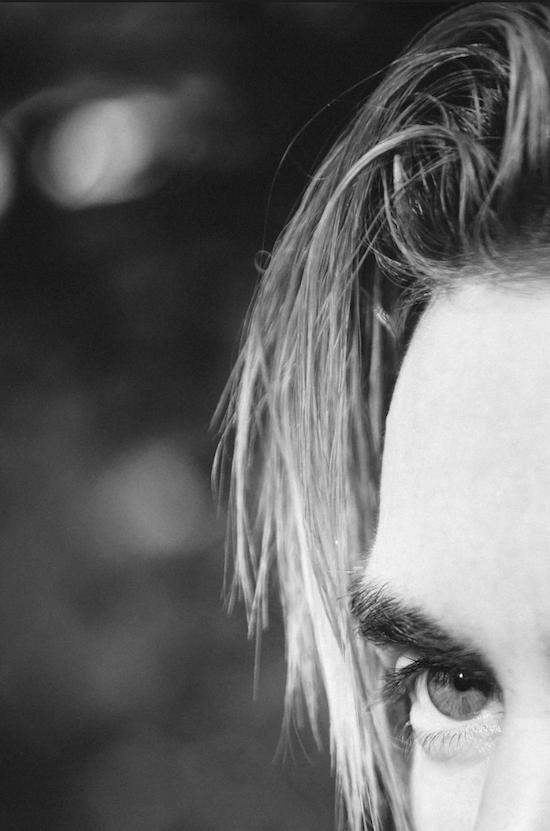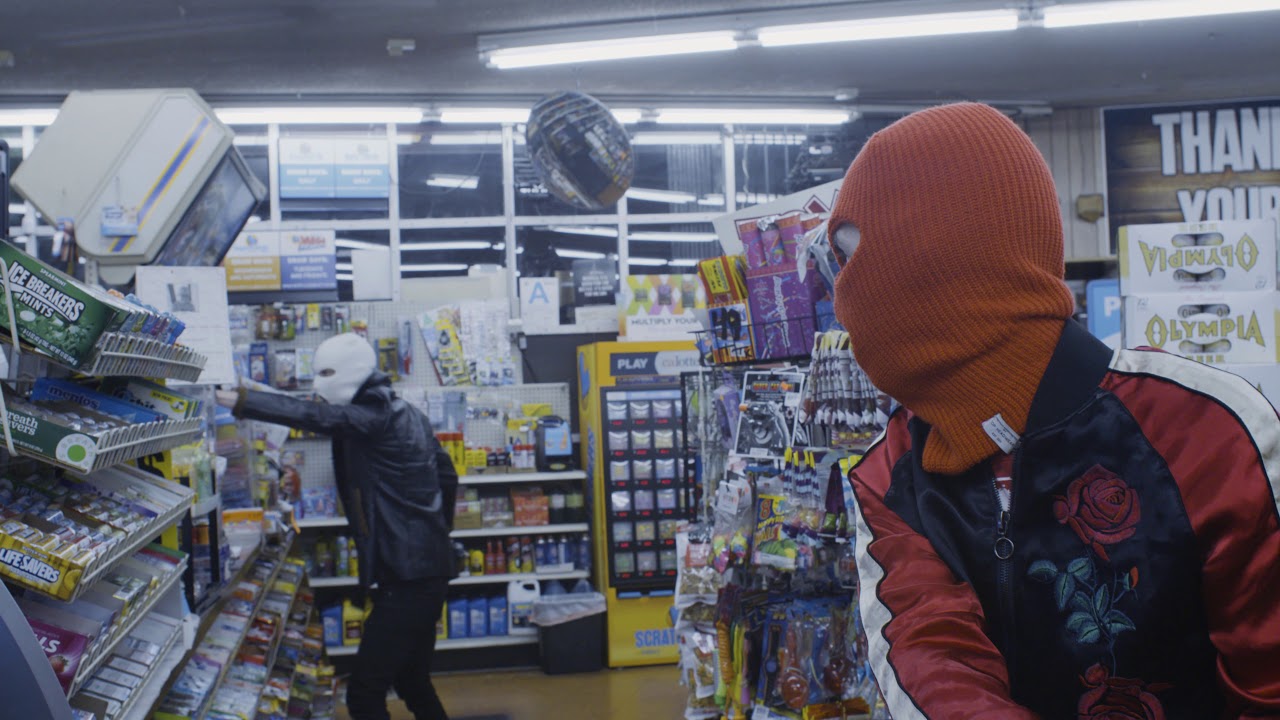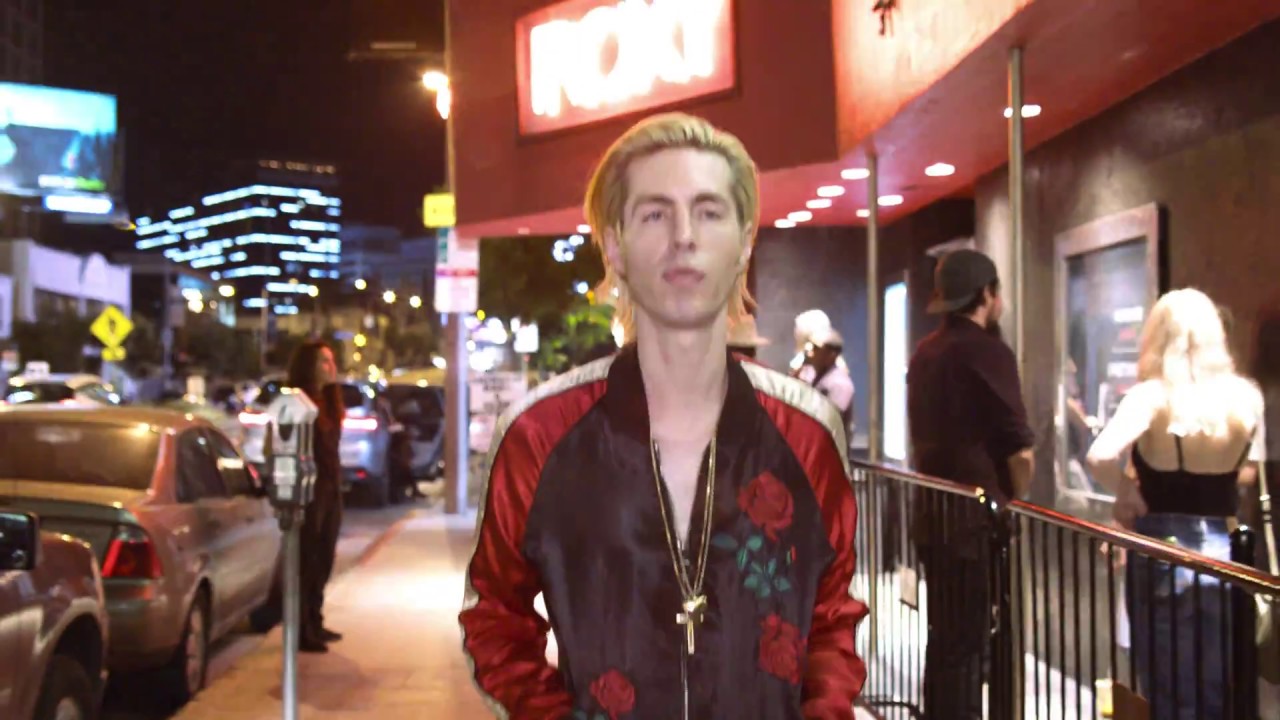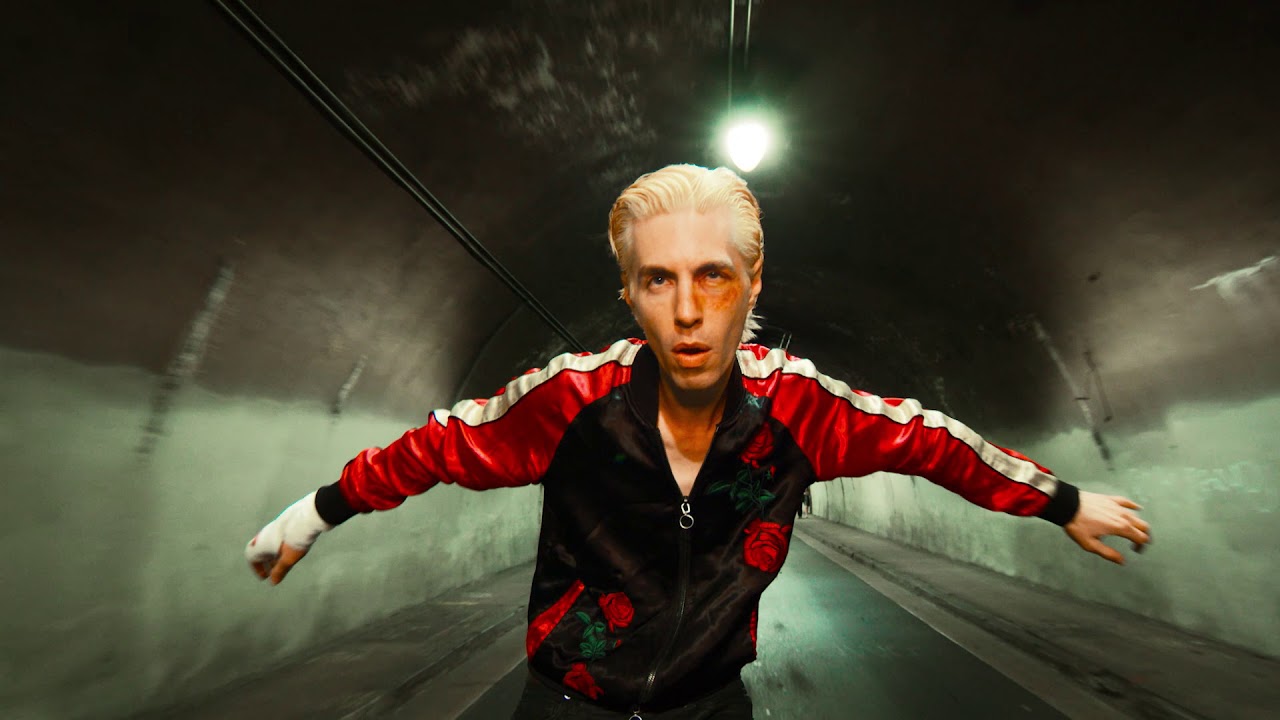Portraits by Olivia Jaffe
Stop me if you’ve heard this one before – I’ve definitely told it before, many times – but the first time I met Joe Cardamone, we were crouched on the floor of The Icarus Line’s tourvan, hiding from marauding venue security after the band’s guitarist Aaron North stole a framed guitar belonging to venerated, deceased blues-rock guitarist Steve Ray Vaughan midway through a calamitous SXSW showcase set at the Austin, TX branch of the Hard Rock Café.
The encounter set the tone for every other time I saw The Icarus Line play, their chaotic and self-destructive tendencies always threatening to sabotage their shows. Their black-hearted, bruised and erotic punk-rock easily justified all the onstage/offstage drama, and two of their albums – 2004’s Penance Soiree, an hour or so of bitter, decadent, blistering recrimination, and 2013’s Slave Vows, their penultimate set of darkly mature disquiet – are among the very best rock & roll of this century. Their two decade career took in rancorous splits, disastrous tenures with major labels, demoralising confrontations with ignorant audiences, and occasional periods of drug-voided oblivion for Cardamone, who has since cleaned up and now treads a straighter (if no narrower) path. In the face of all this, the band still would not quit.
But the death of guitarist Alvin DeGuzman last year, following a long battle with cancer, signalled the end of The Icarus Line, a demise depicted in The Icarus Line Must Die, a new docudrama starring Cardamone as himself, dealing with the hard scrabble of fronting the greatest punk rock group of their generation in the face of no acclaim, no money and texted threats from a mysterious villain. Cardamone’s pursuing the big screen further with his latest project, Holy War, an album that’s also a dark, manic movie (and even a clothing line), produced by his American Primitive imprint, and which he’s been promoting with live shows that find him armed with nothing more than a laptop and a projector loaded with full-bleed visuals. Calling from his studio Valley Recording in Burbank – which is also currently his home – he gives us the lowdown on his new lease of life.
Where are you at right now?
Joe Cardamone: My studio. I’m living here at the moment. A friend of mine gave me this insanely expensive bed, because I was sleeping on the floor. He was like, “You know, I’ve got a Duxiana in my garage.” It’s, like, some rich people shit: a ten thousand dollar bed. I went from sleeping on the floor, to a bed I could never afford in my wildest dreams. I got a giant screen that I do my performances with, set up in the live room here with my projector, and I’ve been re-watching movies that I’ve always been in love with, but I’ve never seen on a big screen: lying on this crazy mattress, watching shit like Bad Lieutenant and Vampire’s Kiss. It’s kind of amazing. I never went to film school or anything like that, but being able to see these movies how they were meant to be seen, it’s just fuckin’ so amazing.
The Icarus Line is definitely dead now, isn’t it? What was the final straw?
JC: Alvin getting sick was the catalyst to release myself from it. I have a hard time releasing myself from things, no matter how fucked up they are. With the group, after we did [final album] All Things Under Heaven – which is probably my favourite work that the band ever did – I knew that there was nothing left to be said. But even years before that, I was feeling like there were so many facets to what I wanna do with art, which that configuration could just not support. But I kept doing it, because there were people in the band who kinda depended on it. Alvin loved it – he fuckin’ loved playing, and going on tour. He’s my best friend – it was something we could do together. He didn’t have a girlfriend, we don’t go on double dates, or whatever the fuck people do. So this was something that we shared. As soon as that got taken away from it, it completely lost the lustre for me.
The struggle of The Icarus Line – all the aggro, all the confrontation – seemed gruelling. As much as it was part of the band’s identity, it didn’t seem like an easy life.
JC: I’m really good at boxing shit up and putting it away, to survive, and with that group I did that a lot. As soon as it was gone, I was in panic mode. Like, ‘Oh shit, I don’t have those rules anymore, the parameters are gone.’ But those parameters, honestly, started to feel not real – this was not who I am anymore. We change. And having that confrontational relationship with an audience, at a certain point, felt inauthentic. Transcending that was something that needed to happen for so long, because it was just limiting my growth. And that’s not what being an artist is about – especially if you’re trying to make things that are relevant and positively affect you.
What was the motivation behind The Icarus Line Must Die?
JC: We didn’t know that the movie was about the end of the band until we were already making it. The director, Michael Grodner, approached me about making a movie. I was pretty reluctant the first few times he asked. And then finally I gave in to the concept, and as we wrote the story and kind of folded the events into it, I realised what it was about. It was uncomfortable to have such a candid lens on the realities of my life. Because it’s part “Reality TV”, part “Film”. I don’t even think that we knew that the movie would end the way that it did until near the end of filming. It was a little bit "Jazz" that way, writing it as it unfolds.
Why did you choose this reality TV/docudrama format?
JC: I’ve got to give credit to Michael for that – I think he even comes from a reality TV background. For him, it was almost second nature. I just put the story out there was it really is, instead of second-guessing what’s happening. The experience of trying to actually act and pull off scenes was enough of a mind-fucking pressure that I didn’t think about the thing beyond that scope.
What’s the deal with Holy War? Is it a movie? Is it an album?
JC: Neither the music nor the movie takes precedent over the other – they’re equal. After releasing records forever, the predictability of it all left me, saying, "I don’t fucking care about this." It’s just not exciting. But this – there’s like, a clothing component to it, we designed a bunch of clothing, it’s for sale on the website. And the films, that’s really where my heart’s at anyways, but I’m still finding my way. I’ve been wanting to be able to make film and score film, but no one’s gonna let me do that, so okay, I’ll just make the films, so I can score them. My dad’s a filmmaker and an actor, and that’s where I came from so for a long time I put that out of the realm of possibilities, just because, you know how kids are, "Fuck that, I don’t wanna do what my dad did." That’s why I did music, I guess. But nothing takes precedent over anything, it’s all this holistic approach to making a collection of work.
When did you start thinking up the whole Holy War and American Primitive concept?
JC: The genesis of what I’m doing now started while I was making Slave Vows. I was making instrumentals and beats at night, to blow off steam – it was so different from what I was working on with the band at that point, because the band had become this loose flow where I would set a trajectory, and guide it through intuitive playing. And making beats at home was the opposite of that – I’m fucking with the eight bar loop, and every moment that happens is something I did, and it gets played back to me exactly how I played it. So I think maybe as I was letting go of control of The Icarus Line, this was a mechanism to retain control. And, also, something I could do by myself, at night, because I don’t play video games, I don’t do crossword puzzles. Like, once I’m done doing music for my job, I’d go home and do music for a hobby. I’m sick.
You use a fair amount of Auto-Tune on the Holy War material. It reminded me that you were the first person to rave about Kanye West to me, around The College Dropout.
JC: I fell in love with The College Dropout. I bought that and R Kelly’s Chocolate Factory the same day. The College Dropout had just come out, and I fuckin’ died. I really connected with his story – we were a similar age… I was just like, I’m in. I’m with this guy. I have the biggest respect for him. I don’t love everything he does, but as far as artists on a big scale go… And that is something I have to believe in, maybe because I grew up in the 80s and 90s, when artists had a wide impact, and impact on culture matters to me. We can all be in love with our band that no-one’s ever heard of, but I care about the world at large, evolving. Artists like him, artists like Bowie, these are the only people that can really move the needle on people who don’t have time or the wherewithal to dig deeper. They’re the ones who give me hope, more than a band like Death Grips or something that’s doing it, innovating on a smaller scale. Even if someone like Kanye isn’t innovating as much, or he’s drawing from those sources and bringing them to people… I mean, I see so many parallels between him and Bowie, I really do. And I think that’s why I’ve always paid attention to what he’s doing.
With Auto-Tune, there was T-Pain before him, but it was super-gimmicky, almost. Kanye turned it into a way for him to be able to express himself that was just not gonna be possible any other way. Like 808s And Heartbreaks, there’s no way he could have done those songs on his own – he’s not a singer like that. I love that –someone who innovates to be able to get what is inside of them out. That’s something I can really respect – like, "Fuck my limitations, I’m doing this anyways."
How did you dream up the live performance concept for Holy War – no musicians, just a backing track, and with projections beamed onto you?
JC: I knew during the last Icarus Line tour that I did not want to play in a band anymore. I didn’t even know if I ever wanted to play with bands ever again. It was such a terrible fuckin’ experience, it was heartbreaking on so many levels, doing it without Alvin. It made me feel like the format of a band was kind of impossible to make anything impactful happen with it. At least for me. I actually jammed with people after I dissolved the band, I put together musicians from around Los Angeles – notable musicians. Put ‘em in a room, and worked on song ideas and shit like that. And no matter who it was, it just ended up sounding like the fuckin’ Icarus Line, but not as good. No matter what. It fuckin’ sucked. It was really depressing, actually. That’s when I had to surrender to the fact that I’ve gotta be on some new shit or I’m not doing anything, there’s no point even doing music. I had a fuckin’ breakdown, man. Like, I don’t want to do music anymore. Because I don’t have anything to offer. I basically reached a fuckin’ panic point. And honestly, the day Bowie died, I drove from the house to the studio and put some of the beats up and just randomly put this one up that was titled ‘Los Angeles 98’, sang on it without thinking, and then played it back. And even though it wasn’t perfect or anything, it let me know everything right then and there. Like, Oh fuck, this is what I’m supposed to do. It was a profound moment.
Is it liberating to be up onstage totally on your own?
JC: It’s incredibly liberating. Part of the decision to do it was also survival mechanism – I didn’t want to go on tour anymore with a band. Like, if I’m gonna travel, I’m gonna bring people I care about with me, and that’s the only way I’m willing to do this. Because quality of life becomes so much more important when you know you have less of it in you. Just out of a utilitarian aspect, this is how I can fuckin’ manage to go on tour and turn it into a much more positive experience. I could get a laptop, go on a plane, and bring my little brother, or bring whoever, I don’t need to sweat it. Because I can pretty much handle this shit on my own. So whomever I bring, it’s just because I want to be around them and share the experience with them and I can bring them to parts of the world. Which is something I’ve never been able to do, it’s always been, like, this scab guitar player that I just met, who I’m pretty sure I don’t even like, but he needs to come with me to fuckin’ make this show happen. I’m not saying it was always like that, because mostly The Icarus Line was like a family, but the format determined what happened.
Once the shows actually started, that’s when the real revelation took place, that’s when I really understood why I was doing this, and was immensely profound to me. The first show I did, my friend Wes from Cold Cave asked if I would open up for their LA show, and I barely had a set, the visuals were barely done. Alvin was dying. And it was a hard prospect, because I knew he was stuck in a bed and there were only a few days left, and this was the first time I was going to go onstage without him in years. What I didn’t realise until I actually got on stage was that I did not have the protection of confrontation that the Icarus Line had offered me my entire life. So I went onstage, and I started doing the set to this crowd who didn’t know who I was, all these strangers, and I felt so weak, so vulnerable, that if somebody in the audience had yelled at me, like, "You fuckin’ suuuuuck!", I probably would have just put the mic down and walked away. I know I would have. With the Holy War shit, it’s not a situation where I’m gonna battle the audience. There’s no wall. There are physical walls I’ve erected for like my own skin protection, where I’m wearing sunglasses and leather gloves and I have the projector blasting into my face so that protects me from the room, from the audience. But as far as the art goes – no protection.
I got to like the second song, it’s a slower song, an emotional song – and I’d never sang anything like that my entire fuckin’ life, and every nerve ending was waiting for someone to just rip my flesh off, and to tell me to get the fuck out of there, and I would have obeyed them, instantly. And I just looked out and I saw them, the audience, they could see exactly what was going on with me, they saw right through me, and their eyes and whatever energy I was putting out, they fuckin’ lifted me up throughout that set. I’ve never really experienced that ever in my life – it just wasn’t part of my vocabulary. And it was a transformative moment for me, and I’ll never be the same, and the thing with it is, I didn’t really understand what made my heroes be my heroes until after that performance. And then I realised what an important part vulnerability plays in what I’m doing and have chosen to do with my life, and I know its kind of weird for it to happen at like 38, but it changed me forever. It’s actually fuckin’ sad to me that I wasn’t ready for that to happen earlier in my life. But I feel so fuckin’ lucky that it did happen.
The movie portion of the project is part film noir, part vampire movie, this nightmarish weird world. It seems particularly Los Angeles, and a particular layer of Los Angeles. What inspired these visions?
JC: It’s hard to say, because it’s almost like a dream diary, cataloguing the subconscious and giving a visual language to the audio without being too overt about anything – establishing a world that is completely real and also exists in dream logic, all at the same time. To me it’s just been experimentation and learning and really trying to extend the sound of the project into a visual, to distil it into a narrative.
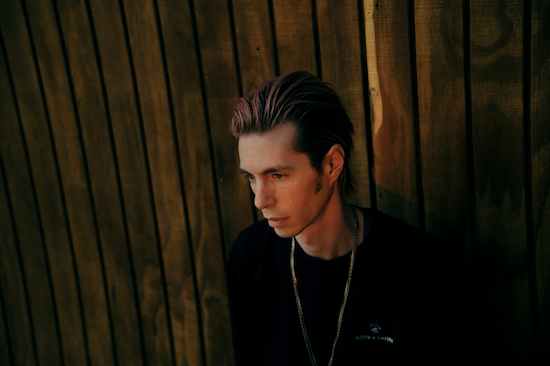
Even though this is different in medium and genre, it still feels very much the same voice that was in the last couple of Icarus Line albums, at least. Part of that, I think, is the influence of Los Angeles itself.
JC: I’ve lived in LA my whole life. The city’s been my muse. It’s a strange one, because I probably could have moved out of here at many points in my life, and figured out a different way of life, but growing up here, the city created what I am. For better and for worse – and in some ways definitely worse. Los Angeles is almost designed for someone who has control problems. So if you want to control every aspect of your life, this is the place to be. There is no chaos here. Not from my perspective. You have your car, you set your destinations, you don’t have to touch a single living soul if you don’t want to. So you design this existence, and you create your universe. And it’s sick, because you become this kind of puppet-master of your own daily existence. It’s fucked-up. The city is a facet of my personality.
The LA you write and sing about reminds me of the Germs oral history, Lexicon Devil – this self-destructive underground Los Angeles, nihilistic and reckless and hedonistic.
JC: I don’t even know if it inspires me, but it’s what I’ve inhabited. Travis [Keller, Cardamone’s longtime friend and gifted photographer] is finishing his first book right now, as we speak. And I looked through the proofs other night, and I’m probably the only person who will know everyone on every page. Seeing the book was tough, man – I just realised how many deaths I’ve experienced with people close to me over the years, and it’s not just because, Hey, I hung out with a bunch of junkies who shot dope and that’s what happened – most of these people did not die from drugs or any kind of reckless behaviour. They were taken. That’s defined to a certain extent my existence – losing people too soon, and having to rectify that in my mind, figure out how to continue on when you lose people all around you, and distilling that into some kind of positive, tangible event, has been my life’s work.
But, look, as a child I didn’t like school, I didn’t do well at school, I was a dropout – but I would educate myself. I was drawn to Bukowski, Burroughs, shit like that. They found beauty in the ugliness of life. And to me it was like such a hopeful thing –these guys were like alchemists, their art was like flowers growing out of a dead body, that’s how it was. Those became my coping mechanisms, to survive after so many losses, so many people falling down. I guess, maybe at a certain point you have a penchant for gravitating towards those situations, because that’s what you write about – the people that have dynamic existences are the ones that I write about. And that’s not always an easy sell at large, but it doesn’t matter. That’s what I was put here to do.
The Holy War stuff is bleak, there’s a violence to it – but life in America seems pretty bleak and violent right now.
JC: Definitely. With the Holy War stuff, I needed to do something that was culturally relevant. As far as like what has been happening in this country at large, it’s such a fuckin’ profound beating that you take if you open yourself to it. The paranoia and uncertainty and sadness, over Obama – not so much the man but what he represented… I cried the day he was elected – to see a black man become the President of America. I think the whole world cried. And then to see [all of that] erode in real time, before our very eyes, has just been heartbreaking. If you inspire the best in people, then you get the best. And if you inspire the worst, and you play to the worst of people, that’s what you fuckin’ get. And it’s been a heavy situation, to watch people be torn apart, especially by someone doing it for such selfish ends – someone that literally cares only how they are perceived, on a minute-by-minute basis. So it’s impossible to say that didn’t affect the mentality of not just my art, but informing the entire fucking environment we are all existing in. There’s no way to move through life without that being a part of your day. It feels like a schism, this sort of alternate reality, like someone pulled the lever on the railroad tracks and we went the wrong way.
This is the worst timeline. Right?
Joe Cardamone plays Le Guess Who? festival in Utrecht on Friday 9 November

